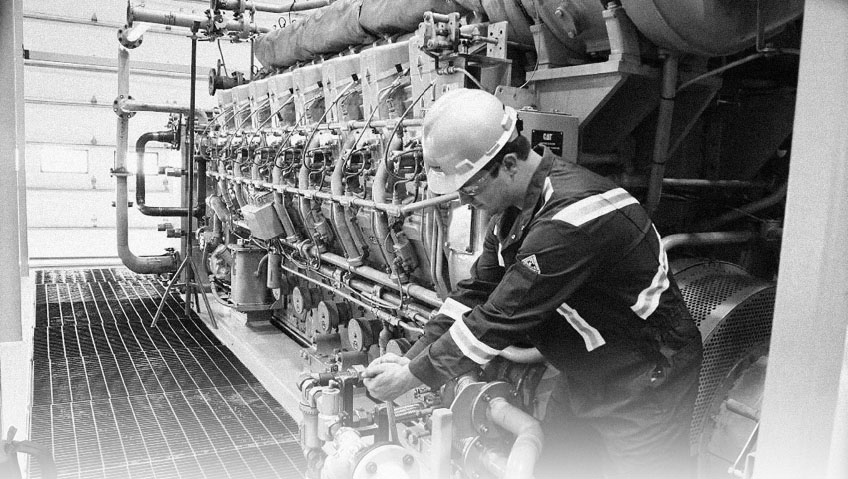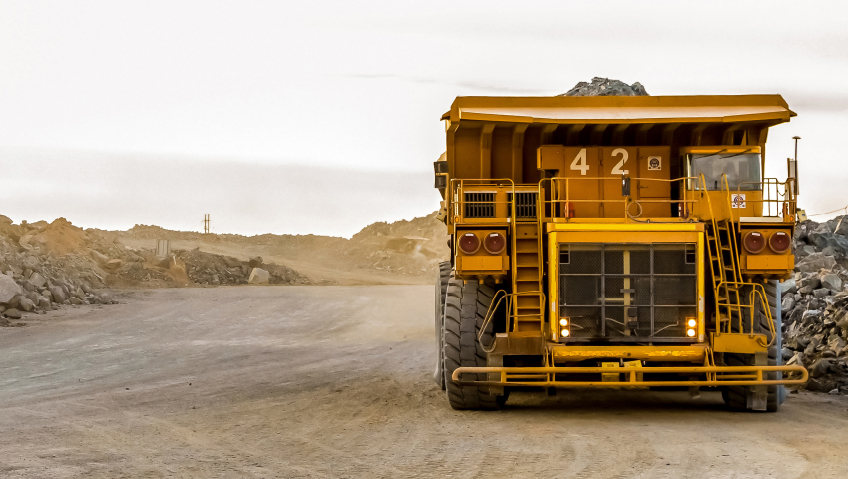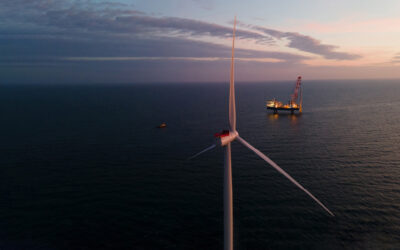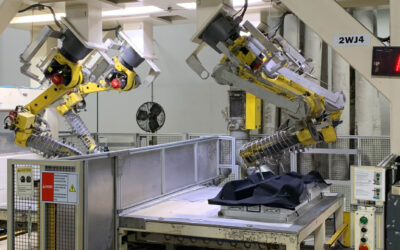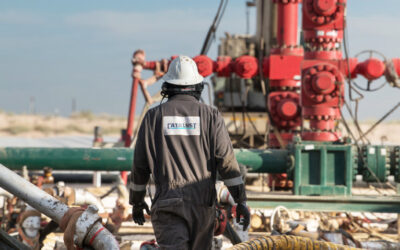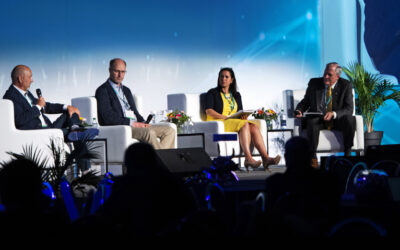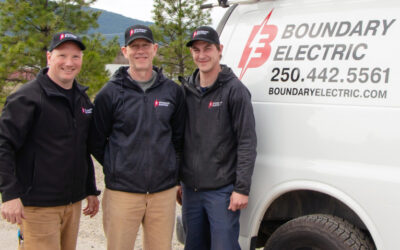As a leading manufacturer of custom power generation equipment, Collicutt Energy’s highly trained and experienced team designs, engineers, and manufactures power solutions, while also working to continually raise the standards for customers, whether repairing, overhauling, servicing or performing preventative maintenance on all brands of engine. Collicutt’s mandate includes offering a wide variety of services while keeping customer downtime to a minimum.
This family-run business has recently experienced exciting growth, including the company’s role as a distributor for products including MTU, Waukesha, Motortech, and Scania – in particular, expanding territory in Alberta as a distributor for MTU/Rolls Royce Power Systems for oil & gas systems and natural gas power generation.
Launched in 1986 by Steven and Lorna Collicutt, the company has gone through a series of changes during its 35 years in business. Starting off performing compression service work, the team expanded to manufacturing compressors and some power generation when it went public in 2000. Now, the company has a new engine-based focus that featured well servicing, fracking, pumping and rigs, along with power generation and gas compression.
“Anything with an engine, we’re into it,” says Ryan Krutzfeldt, Vice President Operations.
The company is the distributor for a diesel power generation product line in the state of California, and also distributes gas power lines in California as well as Oregon, Washington, Idaho, North Nevada and Hawaii. In Alberta, it sells gas-powered gensets to companies such as greenhouses, food processing facilities and independent power producers.
Collicutt also offers the Waukesha product line — another engine manufacturer — in both Canada and California.
“In this case we’re focused on the engines as well as the alternator end, and we’re what Waukesha calls the gold power generation solution provider in California, as well as in all of Canada,” says Dave Taylor, Vice President Operations Canada.
On the MTU side in California, the company has provided approximately two gigawatts of power in the state, selling both smaller units from around 30 kilowatts – which could go into a residence – all the way up to a 3250 kilowatt unit which would go into a data centre or back up a hospital.
“We have provided backup emergency power for data centres, hospitals, NASA, colleges, universities, pretty much across-the-board for all industries,” says Taylor. “Our business is basically like a four-legged stool. We have new units that we sell, but we also have a service side of the business. We service any make and model and it’s not just power gen, but any large engine.”
Collicutt also has a rental fleet that provides rentals to customers to ensure they have emergency power for facilities.
“The big power grid in California is pretty unstable,” explains Taylor. “We get involved especially in the fall when the wind and fire season starts. During the normal course of business — whether it’s repairs to existing generators or maybe even a new construction site — we’ll provide rental power for our customers.”
The fourth aspect of the business is parts, which goes hand-in-hand with service, says Taylor. “Whenever we go to provide repairs or maintenance, obviously parts have to go along with the technician, so that’s the other major leg of our stool.”
While the U.S. is primarily focused on power generation, the majority of the company’s Canadian business revolves around service. “We overhaul their engines, overhaul transmissions, do any work required on frack units whether it’s chassis down, or chassis up – we do everything,” says Krutzfeldt. “From a servicing perspective that’s what we do, but we also manufacture. We’re a custom fabrication shop here for anything that involves an engine. We build to suit clients’ needs.”
That work also includes providing power generation to utility companies. “These might be remote communities that we power direct, or [provide] backup power to always make sure they have power,” says Krutzfeldt. “If they have downtime for maintenance on their primary source, our engines will pick up and run. It’s highly customized in that there are a lot of requirements, and being in Canada, a lot of cold weather considerations.”
Collicutt offers a multitude of engines including MTU, Scania or whatever a customer may desire, with the capability to take a big engine and tear it down, and completely rebuild it, says Taylor.
“We like to be a one-stop-shop and not put our future in somebody else’s hands,” says Krutzfeldt of the company’s dedication to buying and refurbishing or rebuilding engines to have available for customers. “When their unit goes down, we’ll have a unit ready to go so we don’t have to take two to four weeks to rebuild their unit. We can have it sent out the next day, and then we’ll start rebuilding theirs and put that into our inventory.”
That swing program keeps customer downtime to a minimum. Collicutt also has its own accessory shop where it can rebuild cylinder heads and water pumps. “If we [were to] go to a machine shop to do that, it might be a month out. However, we can rush an order and get it in the next day and get the customer back up and operating.”
Collicutt technicians work on both diesel and natural gas engines, overhauling and doing “whatever it takes” to make it like new, says Taylor.
This not only saves customers valuable time, but money as well. This impressive dedication to customer service is one of the numerous qualities that set Collicutt apart from competitors.
“We’re very service-focused, not just in servicing engines, but servicing clients,” says Krutzfeldt. “We’re solutions-focused. We sit down with clients and collaboratively figure out the best way to do what meets their markers of time or cost, and we figure out the best way to do it for them.”
The company has provided custom solutions literally all over the world, adds Taylor, from the Arctic Ocean to the border of Mexico, the Caribbean, Europe, Africa and Asia. These companies ship engines to Collicutt, especially if it’s not conducive to rebuild it in-house at their location.
“It’s pretty economical for them to ship their engine to us,” says Krutzfeldt, who says to get an engine loaded on a port and shipped to Red Deer, Alberta one way is $5,000 – very reasonable when talking about an overhaul on a large engine.
Adds Krutzfeldt, “We like to be almost a cradle to grave company. We want to sit with them and design and build it together, and make it work for them. Then we want to be the service provider for them once the unit is operational.”
Collicutt has also been the Scania distributor since 2011, a European engine line that’s world-renowned. “We’ve been looking for opportunities to put Scania engines in various applications,” says Krutzfeldt. “We’re also the OEM, the original equipment manufacturer of our own Scania-powered gensets.”
Collicutt has built two 450 Tier 4 Final Scania-powered prototype units for its U.S. rental fleet, and shipped them to California where they’ve been “working really well,” says Krutzfeldt. “Their emissions are top notch and their fuel efficiency is leading class. It’s a very reliable system.”
The company is also building a dual pack of two of the 450s mounted in a single trailerized unit, resulting in a one megawatt power generator for product release, likely early in 2022, adds Taylor.
“With the new EPA regulations, there are few engines out there that can offer a megawatt Tier 4 Final solution that is mobile-ready so they can be on a trailer,” says Krutzfeldt. “To make sure we have a solution for the market, we’ve put these two twin units together and have them paralleling together so they’re both producing 500 kilowatts. Together they produce a megawatt of power and still keep their Tier 4 Final rating.”
The company continues to evolve with its foray into the fracking industry, where it rebuilds engines and equipment. Collicutt has also invested in a frack test stand which essentially mimics real-world scenarios for clients, pumping 15,000 pounds of pressure, what they would see at a site.
“When the engine rolls in we put it on our frack test to make sure we capture all the issues with the engine,” says Krutzfeldt. “It comes into our shop and we fix those issues. It rolls back out to the test stand where we make sure we fixed all the problems and it’s not going to fail on the field.”
In an effort to offer even greater customer service, the company also became a commercial vehicle inspection company (CVIP) shop, allowing the team to perform inspections themselves instead of sending units out to a heavy-duty automotive garage. “We’ve become more of a one-stop shop for them. We’re trying to take away all the reasons customers would go somewhere else,” shares Krutzfeldt.
Collicutt has also recently been working with bitcoin mining companies to get them set up with the power generation they require. “We ran a number of systems for our customers over the last few months, with the natural gas feed that allowed us to fire these units up and let them run,” says Taylor.
As Collicutt continues to grow, expand and tackle new areas, its core premise of putting customers’ diverse needs first will remain at the forefront.
“What sets us apart is that we are a very solutions-oriented company,” says Krutzfeldt. “One thing I really communicate to our leaders in the organization is if it’s in our wheelhouse, if it has to do with an engine, we don’t say no. We find a solution.”

